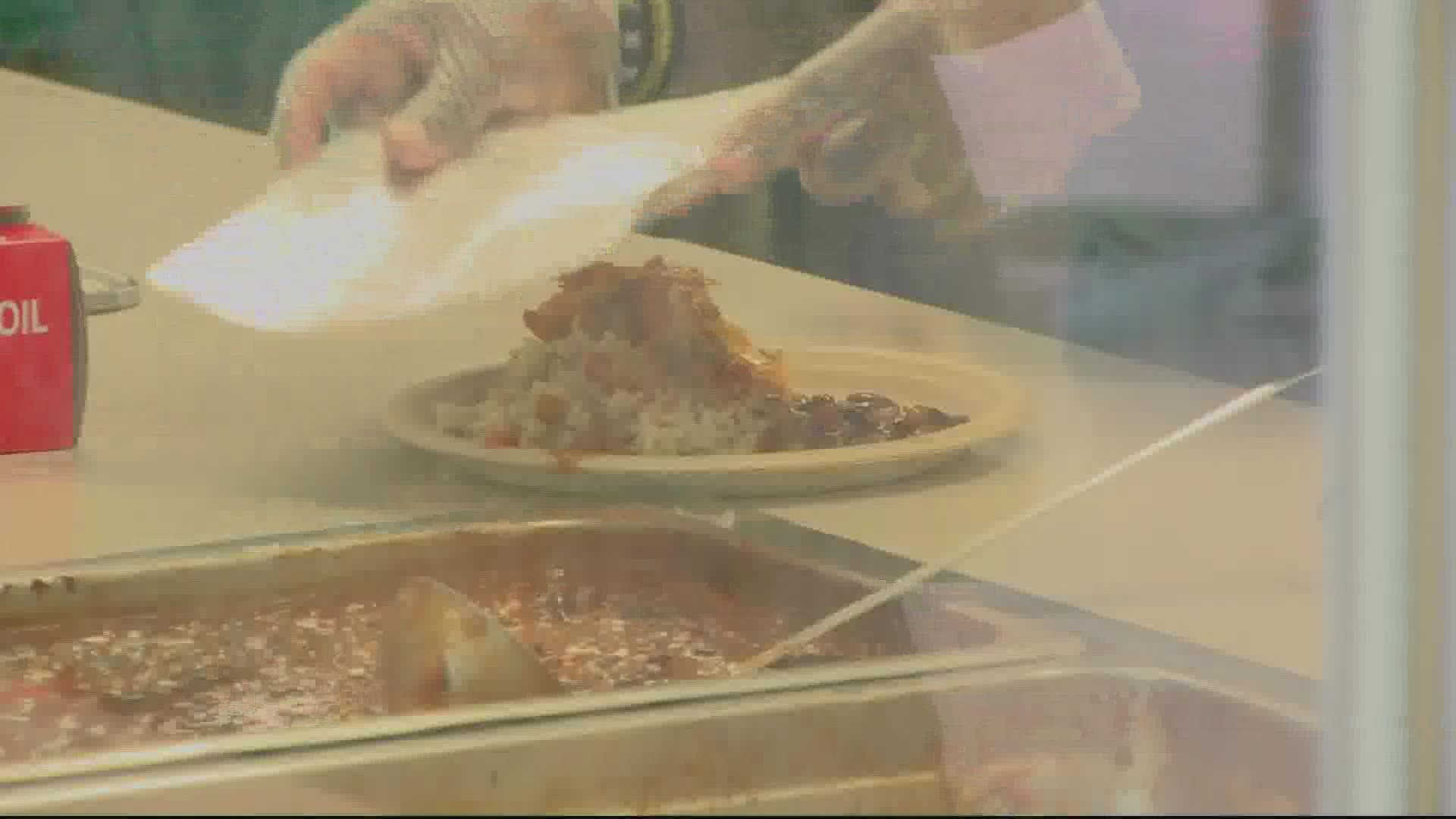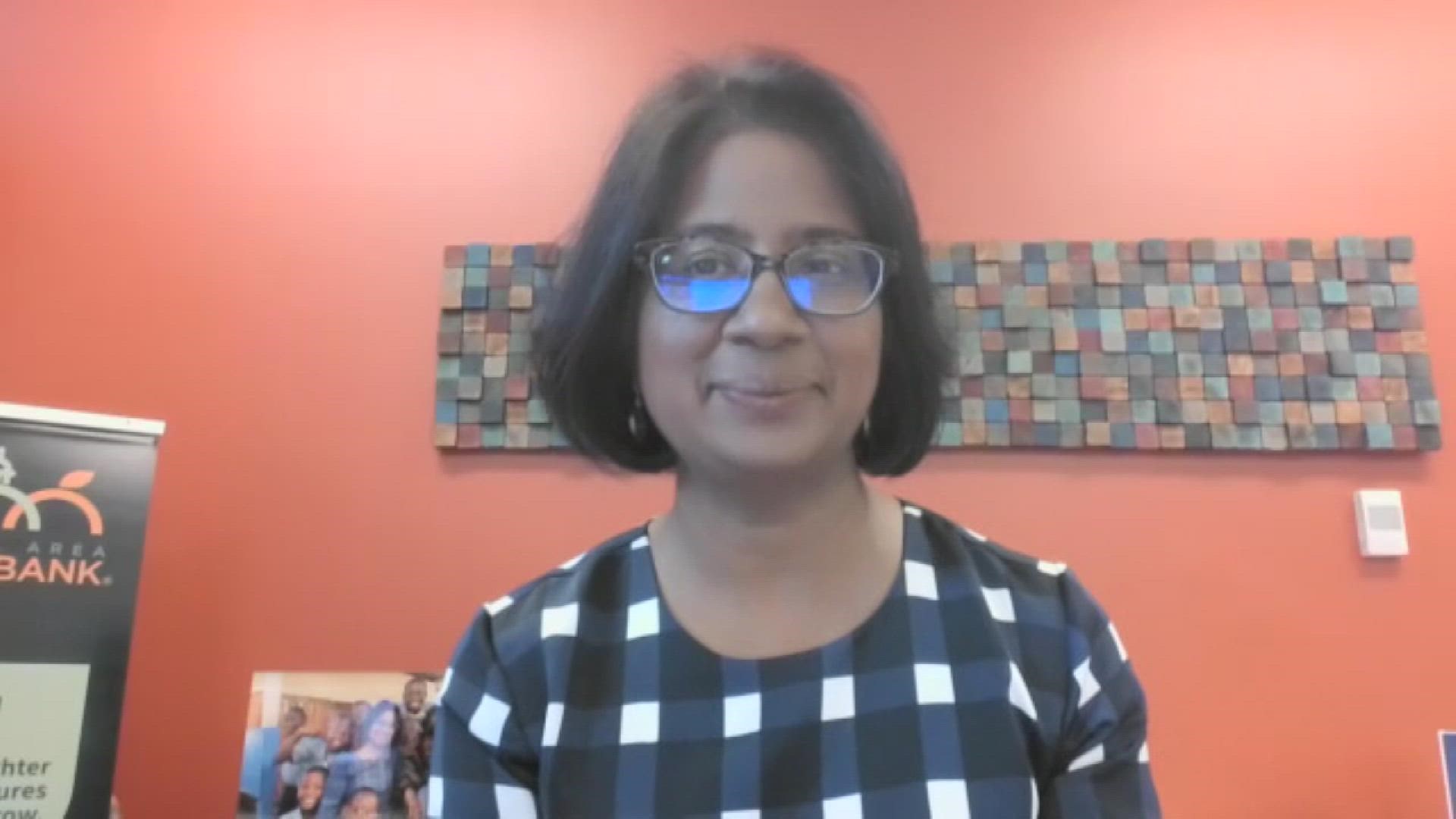WASHINGTON — A new report shows food insecurity continues to impact a sizeable part of the DC region despite the slowing spread of the coronavirus.
The Capital Area Food Bank released the “Hunger Report 2022” on Thursday. The report revealed that a third of the D.C. region, or 1.2 million people, did not know where their next meal would come from at some point during 2021. Also, two-thirds of all non-white households with children experienced food insecurity at some time last year.
The report’s results came from a 4,000-person survey conducted in collaboration with an independent social research organization, NORC, at the University of Chicago.
“Even for those of us closest to the issue of hunger, the numbers in this year’s report are staggering,” said Radha Muthiah, president and CEO of the Capital Area Food Bank. “When any member of our community is experiencing food insecurity, it’s a problem; when one-third of the population has experienced food insecurity in the past year, it’s a crisis.”
Muthiah says the trends and disparities apparent in the data make it clear how quickly the region must act to address the food insecurity issue.
The Capital Area Food Bank recommends employees provide living wages and paid leave for their employees. It also suggests the public sector work to enhance the reach of income-based tax credits while expanding the eligibility of social safety net programs.
“The public believes the government has the primary responsibility to address socioeconomic issues such as food insecurity,” the report reads. “Based on the study’s findings about the sizable impact of program reforms during COVID-19, the core recommendations for the government are to adopt permanent reforms to the social welfare system in order to spur more inclusive economic recovery.”
According to the report, Prince George’s County’s population experienced the most food insecurity in the D.C. area, in 2021, at 48%. D.C. and Prince William County were tied at second in that category at 36%. Arlington County had the lowest share of food-insecure residents at 21%.
WATCH | Manny Hidalgo, executive director of the Shepherd's Table, discusses the prevalence of food insecurity in the DC region.
The report’s findings did not surprise Manny Hidalgo, executive director of The Shepherd’s Table in Silver Spring.
The Shepherd’s Table, which provides breakfast, lunch and dinner to people in need, throughout the week, on top of comprehensive social services and mental care, has served the region for almost 40 years.
“It's not surprising, because I think, the weakness of our system existed before the pandemic,” Hidalgo said. “And, I think the pandemic really just exacerbated those fault lines and have really shown the degree to which people live a very precarious existence here in the Washington area, which is particularly sad, since it's the nation's capital.”
Hidalgo said many people in the D.C. region are surviving paycheck to paycheck, while the inflation crisis and a lack of affordable housing have made things even worse.
“I've noticed a lot younger people than what I used to see my first two years at Shepherd’s Table, this past year,” he said. “Definitely trending towards younger meal guests, at least coming to [the Progress Place location] in particular.”
Hidalgo said a bigger effort must be made by leaders in both the public and private sectors to get people in need employed.
“It's about creating a pathway to self-sufficiency,” he said. “So, for us, yes, we provide meals and other organizations in this building provide shelter. But, all that is, is just a stopgap measure. The real solution is to help people get good living-wage paying jobs. We have to help people get employed, we have to get help people get benefits, jobs with benefits, we have to help people get to a place where they can become fully self-sufficient.”
WATCH | Aaron Turner, a recipient of assistance at The Shepherd's Table, discusses the prevalence of food insecurity in the DC region.
Aaron Turner receives assistance from The Shepherd’s Table. He first moved to the D.C. area, from Pittsburgh, just before the pandemic.
“When COVID hit, it changed my whole lifestyle because I had three jobs,” he said.
Turner said federal assistance, like the federal COVID stimulus and unemployment benefits, helped him keep his home, but everything else became harder to keep up with including getting steady meals.
“I didn't have a source to keep the money coming in,” he said. “It hit me. I hit some hard times. So, I came here.”
Turner said he was grateful for the assistance provided by Shepherd’s Table. However, he added that everyone else in the D.C. area should know that there is no shame in seeking help when they need it.
“It can happen to anybody, it could happen to anybody at any point,” he said. “No matter how well prepared you are, no matter how prepared you are, it can hit you.”
If you would like to assist Shepherd’s Table in its mission to serve people who are experiencing hunger or homelessness, click here. They offer volunteer opportunities with everything from helping their meal services to sorting clothing.
The Capital Area Food Bank also offers opportunities for volunteers to assist with its efforts as well. You can learn more about how to assist them by clicking here.


